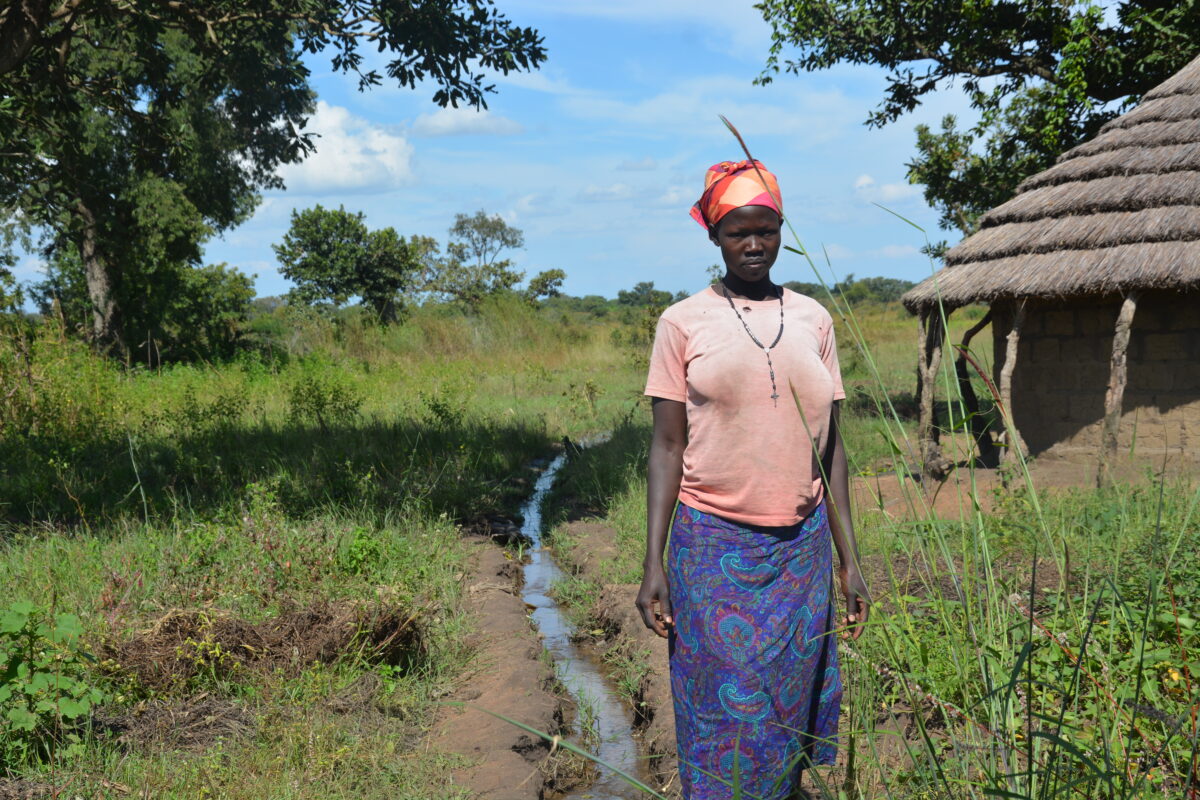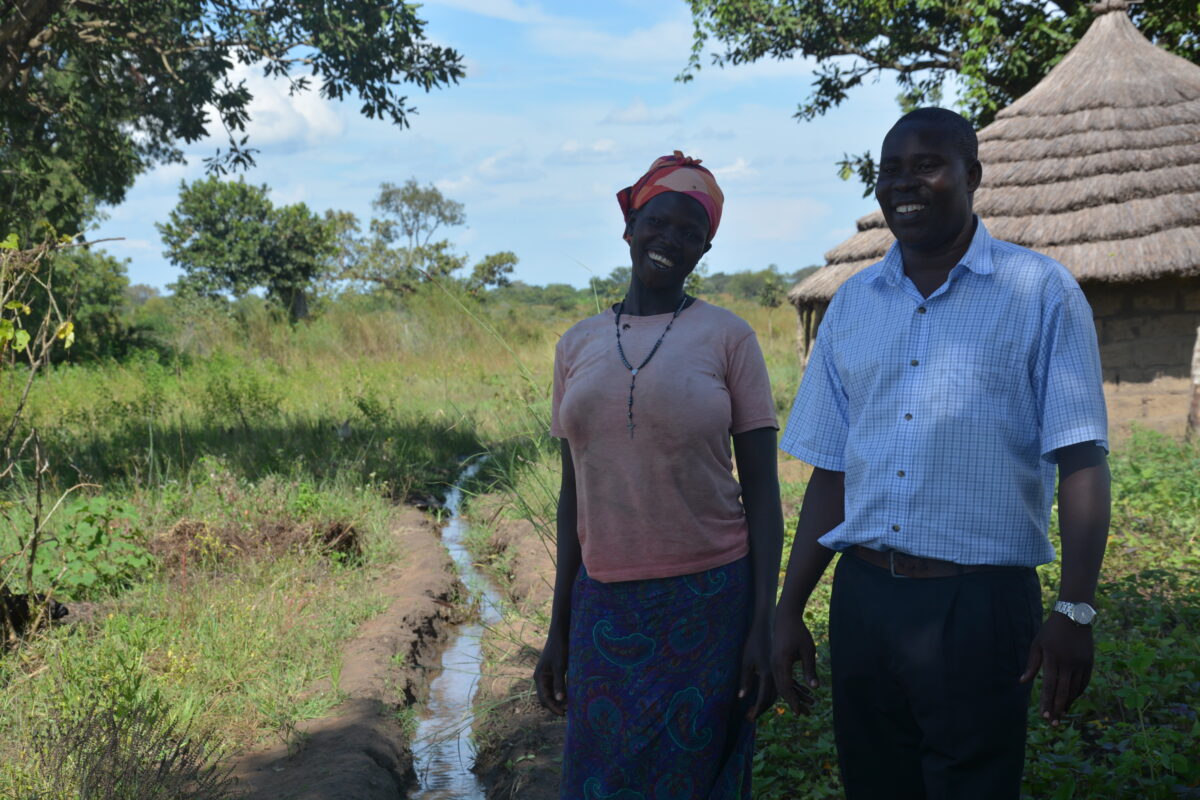
Meet Sarah Akiteng from Uganda, East Africa. Sarah is the mother of two and a climate champion in her village, Anyangabella, in the Katakwi District, one of the flood-prone areas of Uganda.
Sarah and other young women living in the climate hotspots of Uganda are seeking to better understand the dynamics of food security in their communities in the face of climate change. Ongoing flooding is changing the scope of agriculture in the region, a place where previously finding drought-resistance crops was the biggest issue. Now those same crops are threatened by too much water.

Sarah is a member of the Women’s Storylines at the Frontlines of Climate Change and Household Food Security in Uganda, a project championed by Youth Plus Policy Network Uganda and supported by Global Greengrants Fund.
Youth Plus Policy Network Uganda was formed in 2005 to empower young people aged 30 and under to participate in decision making that affects them, elevate youth voices, and increase awareness on issues youth believe in to make positive community, societal, and global impact.
Global Greengrants Fund awarded Youth Plus a grant in 2020 to help increase understanding of how climate change factors impact sweet potato and cassava yield and work with women farmers to provide information on evidence-based interventions to promote food security and resilience in Ugandan agricultural management and policy.
Cassava and sweet potato are two of the main food sources across Uganda, and both are also drought resilient. There is a lot of uncertainty around the cultivation and production of these food crops in the context of climate change, with impacts including drought, flooding, and pest exposure. Women farmers are particularly vulnerable to these environmental changes as they are the main producers of sweet potato and cassava.

This project aims to provide an alternative to the usual uncertainty around the impact of climate change on local scale household food production. The funds will support a research project, and the identification and training of eight cassava and sweet potato women farmer “champions” for policy influence and advocacy, including Sarah. Youth Plus will also hold meetings with decision makers, including the Ministries of Finance, Agriculture, and Water and National Planning Authority, budgeting committees, and the Parliament’s Environment and Natural Resource Committee. The group will also organize a national stakeholders learning and sharing session on the future of cassava and sweet potato production in the face of climate change and run online communications campaign via several media platforms.

With support from Youth Plus and Global Greengrants Fund, Sarah is able to deliver information to fellow community members about the conservation and continued production of sweet potato and cassava to improve yields and production in the face of a flood-risk. By digging garden trenches and using fertilizer, production of these crops is improved, helping to ensure food security for the community. Sarah is optimistic that many more families in her community will be able to access food with improved agricultural practices, including religiously following the flood calendar to ascertain when to plant to avert flood-risk.
Her work in the community has enabled her to engage key decision-makers and implementers in the community to advocate for improved service delivery, especially climate services and information for farmers in her community.
